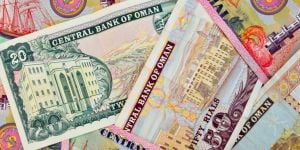
For expatriates, the impact of receiving an income in a currency that is weaker or stronger than the local currency can significantly influence purchasing power. Over time, this disparity can even threaten the viability of the move itself. This article provides practical case studies and advice to help mitigate risks and minimize financial losses.
The impact of currency fluctuations on expats' budgets
Currency fluctuations can significantly affect every aspect of an expatriate's life, particularly when their salary is in the local currency. Changes in currency values can influence their income, savings, and expenses such as school fees, various insurance premiums, rent, and utilities, including water, heating, electricity, and internet.
The risk intensifies for expats in a region where the local currency is depreciating. When paid in the local currency, saving becomes more challenging, and any money set aside for returning home or for future expatriation projects can lose its value. This issue also affects retirees who have converted all their income to the local currency, potentially experiencing a significant reduction in their purchasing power.
On the other hand, expats receiving their salary in a foreign currency are shielded from these risks. In fact, a depreciation of the local currency may even enhance their purchasing power, turning currency fluctuations into an advantage rather than a financial threat.
When currency appreciation undermines expats' finances: The case of Thailand
The strategy appears straightforward on paper: moving to a country with a lower cost of living for greater purchasing power, even without a higher income. This approach has been particularly beneficial for many expatriates, especially retirees, drawn to less affluent nations where their pensions stretch further. Countries like Thailand have become hotspots for Swiss, French, and Belgian expats. Back home, their modest pensions barely covered their needs, but in Thailand, they enjoyed a rather comfortable lifestyle. However, this advantage diminishes as the Thai baht strengthens, eroding their purchasing power.
Thai industrialists and expatriates are closely monitoring the Thai baht (THB). The currency's appreciation poses challenges for businesses that earn most of their revenue abroad, making exports more expensive and increasing competition with other markets. Tourism is also impacted, as visitors find they get fewer bahts for their money. Recent data underscores the trend: as of September 30, 1 US dollar was worth 32.23 bahts, and 1 euro fetched 36.03 bahts. This slow but steady appreciation continued, with the rates as of October 7 standing at 33.44 bahts per US dollar and 36.72 bahts per euro.
Drop in expats' purchasing power: A call for government action
The Federation of Thai Industries (FTI) has been vocal in its call for government intervention. The economic squeeze on expatriates and businesses shows no sign of abating after more than a year. Despite these pleas, the Bank of Thailand maintains the interest rate at 2.5%. While the Bank acknowledges the economic impact on industries and tourism, it asserts that it is effectively "managing" the situation. However, these reassurances have done little to comfort industrialists and foreign residents, particularly retirees.
Recent tax reforms have further complicated matters for expats, requiring them to declare all income sourced in Thailand and any income repatriated to the country as of January 1, 2024, including their pensions. As the baht keeps rising, expats find their pensions shrinking, leaving them with less money amid escalating costs. Real estate prices are rising, and the government nearly increased electricity prices—a decision postponed only after protests from businesses and individuals, but this reprieve may be temporary.
Moreover, new regulations now require retirees to obtain mandatory health insurance. This requirement, coupled with the escalating cost of living, has left some expats fearing they can no longer afford to stay in Thailand. In response, the government is gradually implementing measures to make it easier for them to remain, mainly through adjustments to the long-stay visa (non-immigrant O-A visa) requirements. There's talk of rolling back the minimum health coverage thresholds to pre-Covid levels: 40,000 baht for outpatient care and 400,000 baht for hospital care, offering a potential respite for many.
Currency depreciation and investment boom: The Case of Japan
In the first quarter, the yen depreciation brought joy to foreign tourists and expatriates earning in foreign currencies. On Monday, April 29, the yen reached a historical low since the burst of Japan's financial bubble in 1990, falling to 160.17 yen for just one dollar. Later that week, it further dropped to 153.04 yen per dollar. This financial landscape follows the bursting of a real estate and economic bubble that led Japan into a prolonged economic crisis.
In response to the weakening currency and to bolster residents' purchasing power—which had been diminishing for over a year—the former Prime Minister, Kishida, enacted wage increases. However, looming inflation has diminished the impact of these raises. Amidst political scandals and growing unpopularity, Kishida resigned on August 14. His successor, Shigeru Ishiba, who took office on Tuesday, October 1, after tight elections, vowed to rescue the country from deflation and enhance the purchasing power of its citizens. Ishiba has proposed increasing the minimum wage to 1,500 yen (about 10 dollars) within the next decade, signaling a commitment to substantial economic reform.
Weak local currency: A boon for foreign investors
The situation in Japan exemplifies how a weak local currency can enhance the appeal of a country to foreign investors and tourists alike. Since the health crisis, there has been a notable shift in investments from China to Japan by major investors.
Despite challenges such as a sluggish economy, an aging population, and salaries eroded by inflation, Japan's stability continues to reassure major investors. The yen's recent recovery against the dollar, stabilizing at 148.42 yen per dollar as of October 7, is viewed positively by Japanese companies. Yet, it hasn't deterred investor confidence. For instance, the Saudi fund is considering boosting its stake in Nintendo, a global leader in gaming, of which it currently owns 8.6% of shares. This move aligns with the stock's recent surge of over 5% at the start of the month. Nonetheless, the new Japanese government, under the leadership of Finance Minister Katsunobu Kato, is cautious about enduring sudden and drastic fluctuations in the yen, promising to monitor these changes to safeguard the economy closely.
Furthermore, expats benefiting from stronger currencies are finding lucrative opportunities in real estate, particularly in akiya—abandoned homes sold at low prices, sometimes for less than 5,000 dollars. However, potential investors should be aware that renovation costs can escalate, often exceeding 100,000 dollars depending on the property's condition. Thus, while a stronger currency provides significant purchasing power, it also facilitates greater investment potential in Japan.
Currency fluctuations: Strategies to minimize losses
Expatriates are not required to close their bank accounts in their home countries, but they must inform their bank when opening an account abroad. One fundamental strategy to limit financial losses is to avoid transferring all savings to the host country.
For those immigrating to countries facing significant financial or political instability, heightened caution is crucial, particularly when salaries are paid in the local currency. It is vital to assess the monetary volatility of the country you plan to reside in. For instance, countries like Argentina have faced multiple financial crises, and the currencies of Turkey and Egypt are currently vulnerable due to rampant inflation.
Expatriates should also consider any ongoing loans in their home country, especially if its currency is stronger than that of the host country. It is advisable to repay these loans promptly if residing in an economically unstable country to avoid escalating costs due to currency fluctuations. Additionally, expatriates should remain vigilant about potential political changes in their home country, such as real estate or tax reforms, which could have financial implications.
For those on expatriation contracts, securing a fixed net salary can provide financial stability by ensuring a consistent income regardless of local economic conditions, protecting against the risk of currency fluctuations.



















